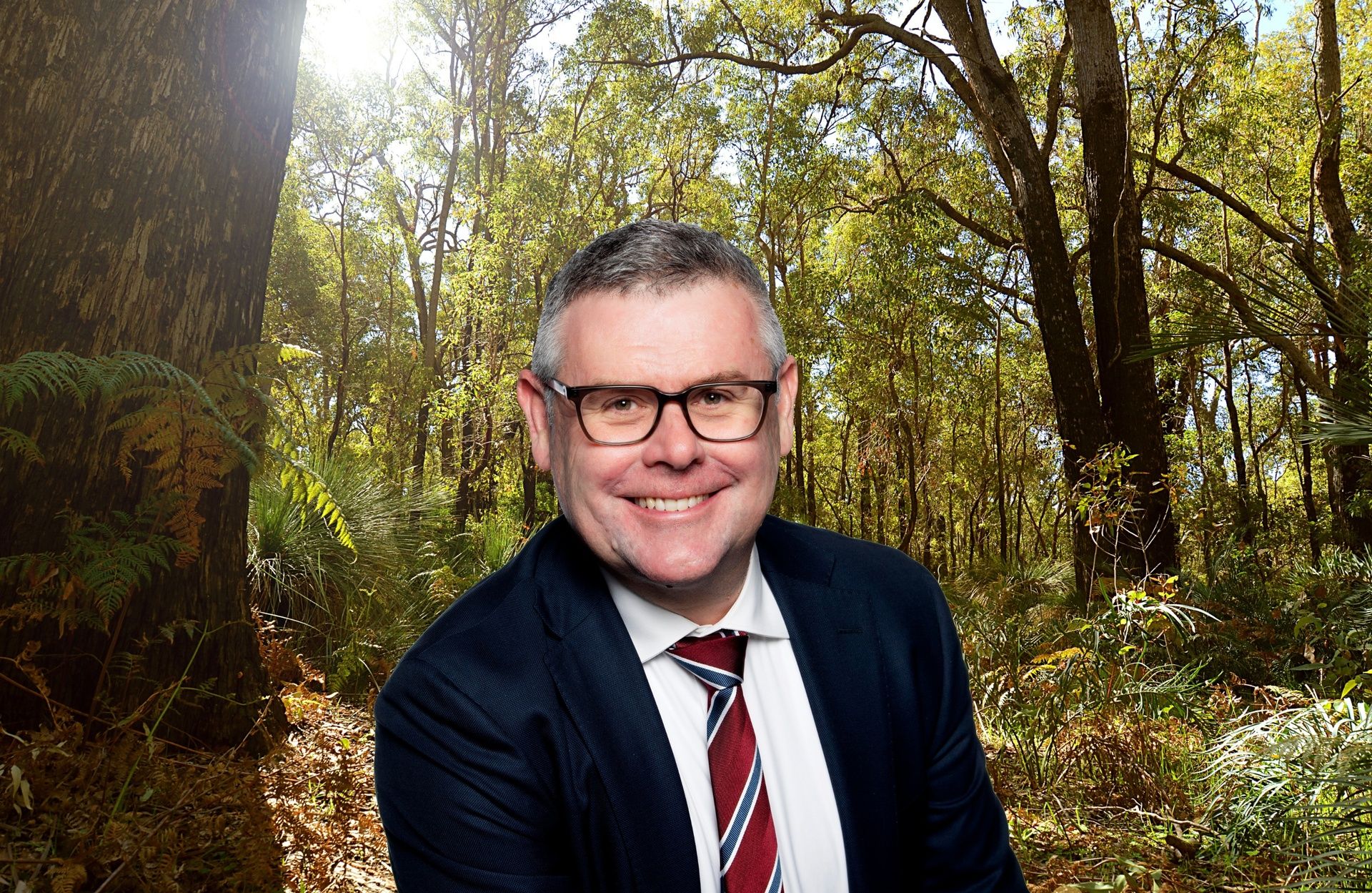- Squiz Shortcuts
- Posts
- The fight over our environment laws
The fight over our environment laws
The fight over our environment laws
The Albanese Government is pushing for big changes to our environment laws. It says the reforms are needed to speed up the approval process for new projects and improve the country’s lagging productivity, in turn boosting the economy. But the Coalition and Greens have a lot of questions… So in this Squiz Shortcut, we’ll take a look at:
what’s wrong with the current laws
what the new ones will look like
and why they’re so tricky to fix…
Squiz the Shortcut
What’s going on with our environmental protection laws?
They’ve been a problem for governments from both sides of politics for a long time - and now it’s Environment Minister Murray Watt’s turn to modernise them.
How does he plan to do that?
Draft legislation containing a suite of reforms is being tabled today, and Watt says the changes are necessary for a bunch of reasons that we’ll get into, but top-line: he reckons they’ll boost our productivity and help us to achieve our energy transition goals, while at the same time ensuring big companies are held accountable in line with our climate targets.
Sounds like a tricky balance…
It is, and that’s because the laws are there to protect the environment, but at the same time, the government wants them to support delivering homes and infrastructure efficiently, while allowing for economic growth.
When was the current legislation passed?
The Environmental Protection and Biodiversity Conservation Act that’s in place at the moment was passed back in 1999 by the Howard Government. It’s a bit outdated now… That’s not our opinion we’re giving you for free there - it was the finding of an independent review commissioned in 2020 by Sussan Ley (she’s now the Coalition leader, but at the time she was the Environment Minister in the Morrison Government).
What did the review find?
It was carried out by Graeme Samuel - a former Chair of the ACCC - and he found that the laws were tying up prospective projects for years in the approval process, but also not doing a good enough job of protecting habitats or species.
Got any examples?
Yep… One species that the environment laws have been criticised for not protecting well enough is the Maugean skate. If that rings a bell for you, it’s because we’ve spoken about it before - it’s the endangered ray that’s been affected by the salmon farming industry in Australia. We did a Squiz Shortcut on that a while ago, and it remains a political issue. More generally though, the Act was found to be “not fit for purpose in meeting future environmental challenges, such as climate change”. And then there was the issue of how the laws were tying up project approvals and hurting efficiency…
Are there any numbers on that?
Yep… The Samuel review found that in the 20 years since those original laws came in, the average time taken for resource projects specifically to get approved blew out from 716 days to 1009 days, partly due to double handling between federal, state and territory governments… And that’s costly - it makes everything more expensive.
What else did the Samuel review find?
It highlighted a stack of other issues, including a lack of consultation with First Nations people about management of the environment, and it recommended ways to better include them in the process. So, since that review came in, there have been several attempts to change things up, and this is the latest one.
What changes are in store?
Let’s start with the approval process. As the law currently stands, both federal and state Environment Ministers have to approve projects. But under these proposed laws, one or the other can sign off on certain ones…
How will that affect things?
The government reckons that will knock months, or even years, off approval times. You’ll remember that out of the Economic Roundtable there was a discussion about the need to move faster, so more homes can be built, along with investment into things like mines and other infrastructure that need to get approved or knocked back quickly - and that’s taken on a new urgency in light of last week’s minerals deal with the US…
Got it… What else is on the table?
Another part of the overhaul that’s attracted a lot of attention has been the plan to create a National Environment Protection Agency (or NEPA for short) which will act as a regulator and enforcer for the new laws.
How will it work?
So the NEPA will be charged with making sure big companies involved in things like coal and gas projects comply with their legal obligations. So it’ll essentially be an environmental watchdog. For example, it’ll have the power to issue stop work orders on projects if it thinks there’s unacceptable environmental risks… And the government says it’ll help to restore public trust.
How would it do that?
Minister Watt says people will be reassured that there’s an organisation watching over things… And there would be steep penalties for companies found not meeting their requirements. They’d be risking fines of up to $825 million if they fall short, as well as being stripped of any money they made through breaching the laws.
Has there been any pushback?
There sure has… One aspect of the reform bill that’s copped criticism from environmental groups is the Minister’s decision not to include a climate trigger in the new laws.
What’s a climate trigger?
The Greens and environmental groups want climate impacts taken into account by decision makers who are assessing applications. And a climate trigger would make sure that happened, by having the climate impacts of projects assessed along with their environmental impacts. In practice, it’s like a climate alarm bell or red flag that could have seen coal and gas projects blocked because of climate impacts…
Why has it been ruled out?
Minister Watt says it would slow down approvals. Instead, companies will have to report their emissions and share their plans to mitigate them in order to reach net zero emissions by 2050 (that’s the target we’re aiming to reach under the Paris Climate Agreement of 2015).
Does the Minister have the support in parliament to get the reform bill passed?
Well, at the moment there’s no clear political partner to usher it through. He wants the legislation to pass this year, but that’s going to hinge on him making deals with the other parties and the crossbench. And he hasn’t exactly been feeling the love from any of them…
Where do the other major parties stand?
On one side, the Coalition argues the laws are anti-business, while on the other, the Greens reckon they’ve got “big business and the mining companies’ fingerprints all over it”.
Let’s start with the Coalition…
Well, they’ve welcomed the exclusion of a climate trigger from the legislation, but they’ve got other issues with it. The NEPA’s powers as a watchdog enforcing compliance is a big sticking point. They’ve raised concerns about the scope of the stop work orders and they’ve asked for some clarification (as have the Greens) on the definition of “unacceptable impact” when it comes to the environment. Earlier this week, the Coalition leader Sussan Ley weighed in…
What did she say?
She says the bill should be split into 2 - one being the approvals part, which she wants prioritised, and the other “more contentious environmental elements” to come later. She said in their current form, the laws “risk being a gift to our overseas competitors, a handbrake on investment and a red light to jobs”. And the Greens also have issues with the bill…
What’s their position?
Greens’ environment spokesperson Senator Sarah Hanson-Young said the laws were “worse than the status quo” and overly geared for business. She said: “These are meant to be environmental protection laws, not business approval laws ... We want to make sure these laws protect our forests and protect our climate”. She’s also raised concerns that the legislation has been rushed and needs more consideration. On top of that, there’s been criticism from the Indigenous community…
What’s that about?
Minister Watt has been accused by Aboriginal land councils in the Northern Territory of not consulting with First Nations people on the new laws… This week 4 land councils from the NT said they hadn’t been asked about the new legislation. That’s a big issue because they say they’re dealing with the effects of climate change, so these laws are going to be really important for the ongoing health of their environment and community - and, as we mentioned, the Samuel review specifically called out Indigenous consultation as a key improvement.
What has the Minister said about that?
Watt’s office says his staff have consulted with some of those land councils, and he’s pressing ahead… And he wants the changes to be lasting so he’s also built in a non-regression clause to make sure “the standards over time won’t be able to go backwards”. There’ll also be a set of environmental standards he’s working on but they won’t be finalised until next year.
What’s needed to get the reforms over the line?
Minister Watt wants the major parties and crossbench to be open to making deals to get it through parliament, saying: “Most of the stakeholders recognise that they’re better off trying to get most of what they want rather than get nothing and to have to stick with the laws that we’ve got in place at the moment.” He says it’s “now or never” and “we either make these changes or we stick with a law that everyone recognises is broken.”
So, there are still some hurdles to clear?
Yep - and a healthy debate to be had, at the very least… And as a backdrop to all of this, don’t forget that Australia still wants to host the UN’s climate summit, COP31, next year. This year’s event, COP30, takes place in Brazil the week after next. So international eyes are on these laws too, and Minister Watt wants it all wrapped up by Christmas.
Like a big green present…
Exactly… He reckons there doesn’t have to be a choice between productivity and the environment, saying: "We can improve both, and that is what our bill is designed to do”.
Bulk gift cards without the admin headache
If wrangling gift cards for team birthdays or customer thank-yous falls to you, GroupTogether just launched bulk eGift cards. Upload a spreadsheet with the names and amounts, and send up to 1,000 digital gift cards in one go. Recipients get an AnyCard with access to 100+ big-name retailers. Check out GroupTogether's bulk eGift cards solution because, let’s be honest, it’s probably easier than your current process...
Onto our Recommendations
Reading: This wrap-up of the proposed laws by SBS is a handy summary of where things are up to and the big issues at play…
Recent Shortcuts
What gold’s got to do with the Louvre heist |
Australia’s climate summit showdown |



